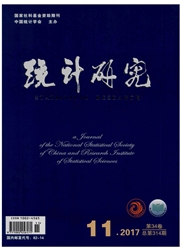

 中文摘要:
中文摘要:
本文构建一个两期招聘理论模型,研究社会关系网对我国农民工工资的作用机制。理论研究发现:厂商通过推荐方式招聘员工能减少信息缺失,使厂商和劳动者都获得额外收益;随着劳动者关系网的扩大,第二期劳动者的聘约工资增加,但影响呈边际效应递减。此外,农民工关系网质量的提高有助于提升其工资。本文采用RUMi C数据,从社会关系网的规模和质量角度检验理论结论,结果支持关于社会关系网和聘约工资倒U关系的论断。
 英文摘要:
英文摘要:
The paper presents a theoretic economic model of two-period recruitment and studies the mechanism and effects of social networks on the rural migrant 's wage in China. The theoretic analysis concludes that it can decrease information loss and make the additional common benefits for firms to recruit workers through the recommended way. As the social network of the rural migrants expand,the offer wage of the workers in the second period will increase and the effect is marginally decreasing. Furthermore,the more quality of social network can help rural migrant to get more wage. Then,by using the RUMi C data,it makes an empirical test on the size and quality of the social networks. The empirical analysis verifies the inverse-U relationship between the social networks and rural migrant's wage.
 同期刊论文项目
同期刊论文项目
 同项目期刊论文
同项目期刊论文
 期刊信息
期刊信息
